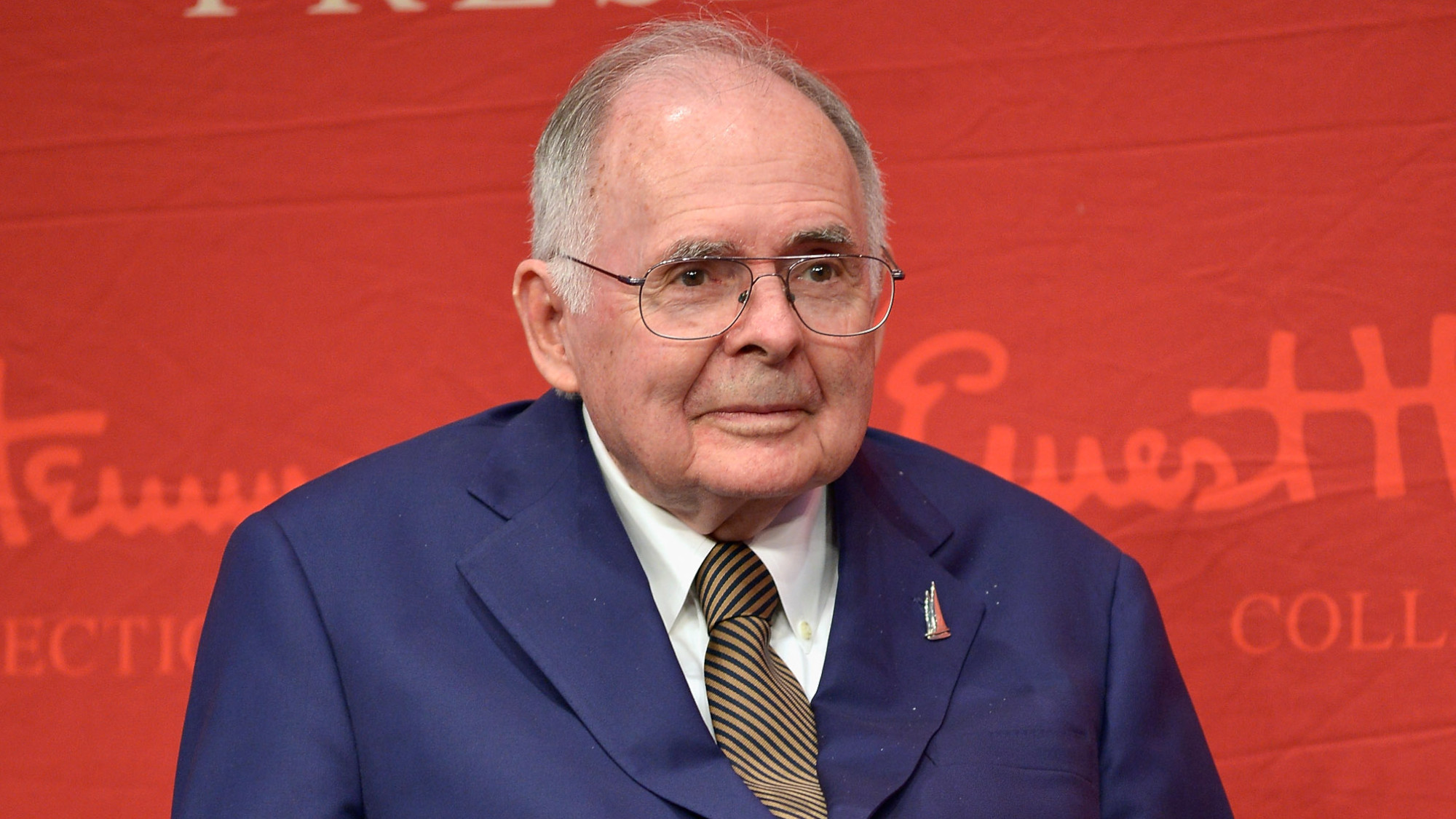Obituaries
Albert Hofmann
A free daily email with the biggest news stories of the day – and the best features from TheWeek.com
You are now subscribed
Your newsletter sign-up was successful
The Swiss chemist who was the father of LSD
Albert Hofmann
1906–2008
The Week
Escape your echo chamber. Get the facts behind the news, plus analysis from multiple perspectives.

Sign up for The Week's Free Newsletters
From our morning news briefing to a weekly Good News Newsletter, get the best of The Week delivered directly to your inbox.
From our morning news briefing to a weekly Good News Newsletter, get the best of The Week delivered directly to your inbox.
On April 16, 1943, Albert Hofmann was studying an alkaloid he had derived from ergot, a fungus that grows on rye, at Sandoz Pharmaceuticals in Basel, Switzerland. At some point he got a trace of the chemical—lysergic acid diethylamide-25—on his fingertips. He soon found himself dizzyingly lightheaded. “In a dream-like state, with eyes closed,” he recalled, “I perceived an uninterrupted stream of fantastic pictures, extraordinary shapes with intense, kaleidoscopic play of colors.” Hofmann had become the first person to take LSD, which would unleash a psychedelic revolution.
Hofmann had originally synthesized LSD in the hope that “it would be a stimulant for the respiratory and circulatory systems,” said the Los Angeles Times. After discovering its hallucinogenic properties, he took it again. This time, paranoia took hold: “A demon had invaded me, had taken possession of my body, mind, and soul. I jumped up and screamed,” he related. A neighbor was transmogrified into “a malevolent, insidious witch with a colored mask.”
Nonetheless, Hofmann would soon be touting LSD’s “ability to advance the human spiritual condition,” said the London Guardian. He was an unlikely proselytizer; he had written his doctoral dissertation at the University of Zurich on the gastrointestinal juice of the vineyard snail. But as a child, Hofmann said, “I had this very deep connection with nature.” LSD, he felt, could lay bare the foundations of the human psyche. “We need a new concept of reality,” he said. “LSD could help to generate such a new concept.”
At first, LSD held great promise, said The Washington Post. “Sandoz manufactured LSD under the trade name Delysid by the late 1940s. During the next two decades it was intensely researched as a drug to treat all manner of emotional and addictive disorders.” But the drug was so potent and unpredictable that various governments began outlawing it; the U.S. ban came in 1966. Hofmann remained an LSD enthusiast, though, taking it hundreds of times and receiving supportive letters from fellow trippers. But he was dismayed when characters such as Timothy Leary helped turn it into a recreational drug. Hofmann titled his 1979 autobiography LSD: My Problem Child.
A free daily email with the biggest news stories of the day – and the best features from TheWeek.com
Hofmann did extensive research into other psychedelics and retired from Sandoz in 1971. When he turned 100 on Jan. 11, 2006, he was celebrated with an international symposium. “This is really a high point in my advanced age,” he said. “You could say it is a consciousness-raising experience without LSD.”
-
 The ‘ravenous’ demand for Cornish minerals
The ‘ravenous’ demand for Cornish mineralsUnder the Radar Growing need for critical minerals to power tech has intensified ‘appetite’ for lithium, which could be a ‘huge boon’ for local economy
-
 Why are election experts taking Trump’s midterm threats seriously?
Why are election experts taking Trump’s midterm threats seriously?IN THE SPOTLIGHT As the president muses about polling place deployments and a centralized electoral system aimed at one-party control, lawmakers are taking this administration at its word
-
 ‘Restaurateurs have become millionaires’
‘Restaurateurs have become millionaires’Instant Opinion Opinion, comment and editorials of the day
-
 Catherine O'Hara: The madcap actress who sparkled on ‘SCTV’ and ‘Schitt’s Creek’
Catherine O'Hara: The madcap actress who sparkled on ‘SCTV’ and ‘Schitt’s Creek’Feature O'Hara cracked up audiences for more than 50 years
-
 Bob Weir: The Grateful Dead guitarist who kept the hippie flame
Bob Weir: The Grateful Dead guitarist who kept the hippie flameFeature The fan favorite died at 78
-
 Brigitte Bardot: the bombshell who embodied the new France
Brigitte Bardot: the bombshell who embodied the new FranceFeature The actress retired from cinema at 39, and later become known for animal rights activism and anti-Muslim bigotry
-
 Frank Gehry: the architect who made buildings flow like water
Frank Gehry: the architect who made buildings flow like waterFeature The revered building master died at the age of 96
-
 R&B singer D’Angelo
R&B singer D’AngeloFeature A reclusive visionary who transformed the genre
-
 Kiss guitarist Ace Frehley
Kiss guitarist Ace FrehleyFeature The rocker who shot fireworks from his guitar
-
 Robert Redford: the Hollywood icon who founded the Sundance Film Festival
Robert Redford: the Hollywood icon who founded the Sundance Film FestivalFeature Redford’s most lasting influence may have been as the man who ‘invigorated American independent cinema’ through Sundance
-
 Patrick Hemingway: The Hemingway son who tended to his father’s legacy
Patrick Hemingway: The Hemingway son who tended to his father’s legacyFeature He was comfortable in the shadow of his famous father, Ernest Hemingway